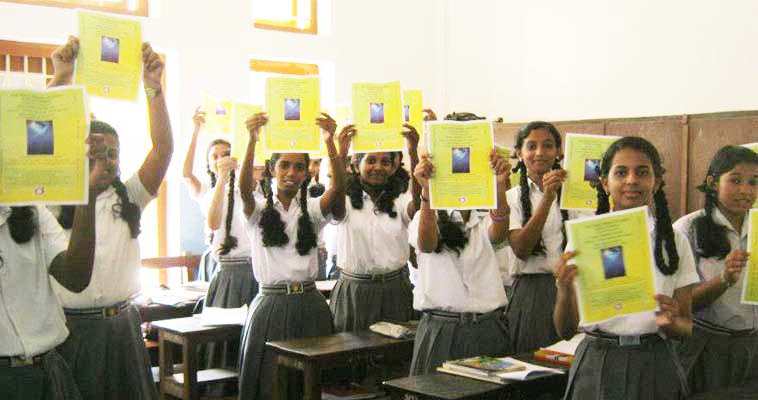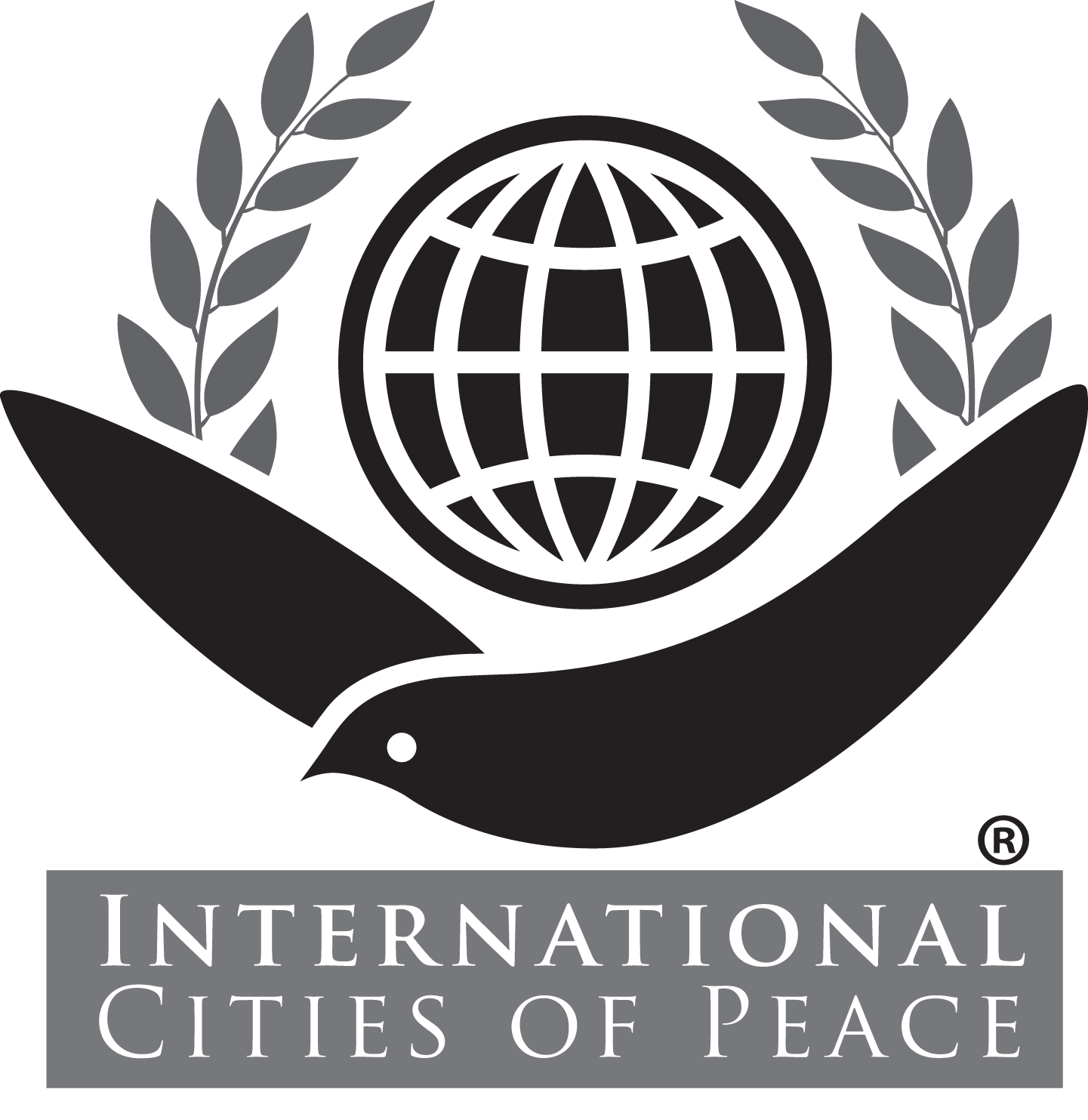Kochi, India: City of Peace
Welcome to P.S. George, the leader of the cities of peace movement in Kochi, India. The Society For Compassion And Peace (SCAP) is a non-profit charitable organization registered under the Travancore-Cochin Literary, Scientific and Charitable Societies Regulation Act 1955.
Note: Introduction page with information primarily at the time of joining International Cities of Peace. For updates, please contact the liaison.
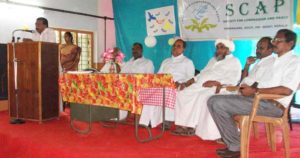
International Day of Peace
VISION
We envision a world filled with compassion, peace and joy. The world becomes a spiritual community living in close communion with God and fellow-beings. Here everyone enjoys inner freedom, connect compassionately and live harmoniously. Shared humanity and oneness of creation are respectfully understood and lived by all.
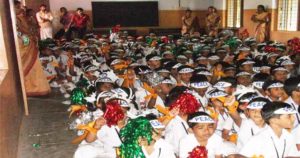
International Day of Peace
MISSION
The SCAP stands for promoting
• compassion and peace
• spirituality and holistic living
• quality relationships through compassionate connection and personal enrichment
• nonviolence in word and deed
• Justice and social consciousness.
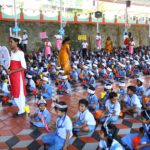
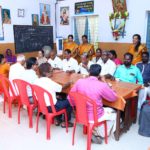
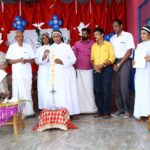
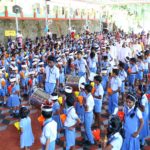
2017 International Day of Nonviolence in Kochi
ABOUT THE LEADERSHIP
P.S George is the President and Founder of ‘Society for Compassion and Peace. SCAP is dedicated to the cause of compassion, peace and joy. He is a former Higher Secondary School Principal and holds Master’s degrees in Economics, Education, Distance Education and Psychology. He has a good background in guidance and counseling.
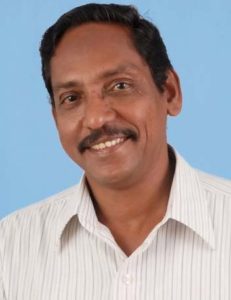
He has successfully completed a two year Diploma course in Theology and Catechetics combined with many other disciplines from the the Pastoral Orientation Centre, Palarivattom,under the Kerala Catholic Bishop’s Conference.
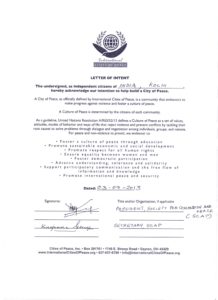
Letter of Intent
His long years of service both at the teaching and administrative levels, experience as an in-service educator, service as a Naval NCC Officer,service as an academic counselor at IGNOU , participation in various workshops in the field of education, religion and communication , exhaustive journeys inside and outside the country and experiences in Ashram life – all have contributed to this enriched vision of spreading the message of compassion and peace in the society and children in particular. George strongly believes in the Gandhian vision of ‘Be the change you want to see in the world’ and finds confidence in Mathew 5/9, “Blessed are the peace makers for they shall be called children of God.”
CONTACT INFO
P.S. George
Polackal, Thrikkakara P.O.,
Kochi – 682021,
Kerala , India
Mobile: +91-9746773909
Email: connect@scapglobal.org
Website: www.scapglobal.org
ABOUT KOCHI, INDIA (excerted from Wikipedia)
Kochi, formerly Cochin, is a major port city on the west coast of India by the Arabian Sea and is part of the district of Ernakulam in the state of Kerala. Kochi is often called by the name Ernakulam, which refers to the mainland part of the city. The city of Kochi (pop. 601,574) is the most densely populated city in the state and is part of an extended metropolitan region (pop. 2.1 million), which is the largest urban agglomeration in Kerala.
Heralded as the Queen of the Arabian Sea, Kochi was an important spice trading centre on the Arabian Sea coast from the 14th century. Occupied by the Portuguese Empire in 1503, Kochi was the first of the European colonies in colonial India. It remained the main seat ofPortuguese India until 1530, when Goa was chosen instead. The city was later occupied by the Dutch and the British, with the Kingdom of Cochin becoming a princely state.
Kochi was the centre of Indian spice trade for many centuries, and was known to the Yavanas(Greeks and Romans) as well as Jews, Arabs, and Chinese since ancient times. Kochi rose to significance as a trading centre after the port around Kodungallur (Cranganore) was destroyed by massive flooding of Periyar in 1341. The earliest documented references to Kochi occur in books written by Chinese voyager Ma Huan during his visit to Kochi in the 15th century as part of AdmiralZheng He’s treasure fleet.[28] There are also references to Kochi in accounts written by Italian traveller Niccolò Da Conti, who visited Kochi in 1440.
According to many historians, the precursor state to Kingdom of Kochi came into existence in early 12th century, after the fall of the Chera Kingdom. The reign of the Kingdom was hereditary, and the family that ruled over the region was known as the Perumpadappu rulers in the local vernacular. The mainland Kochi remained the capital of the princely state since the 18th century. The King of Kochi only had authority over the region encompassing the present city of Kochi and adjoining areas. However, during much of this time, the kingdom was under foreign suzerainty, and the King often only had titular privileges.
Portuguese navigator, Pedro Álvares Cabral founded the first European settlement in India at Kochi in 1500. From 1503 to 1663, Fort Kochi was ruled by Portugal. This Portuguese period was a harrowing time for the Cochin Jews, as the Inquisition was active in Portuguese India. Kochi hosted the grave of Vasco da Gama, the first European explorer to set sail for India, who was buried at St. Francis Church until his remains were returned to Portugal in 1539. The Portuguese rule was followed by that of the Dutch, who had allied with the Zamorin of Calicut to conquer Kochi. By 1773, the Mysore ruler Hyder Ali extended his conquest in the Malabar region to Kochi forcing it to become a tributary of Mysore. The hereditary Prime Ministership of Kochi held by the Paliath Achans ended during this period.
Meanwhile, the Dutch, fearing an outbreak of war on the United Provinces, signed the Anglo-Dutch Treaty of 1814 with the United Kingdom, under which Kochi was ceded to the United Kingdom in exchange for the island of Bangka. However, there are evidences of English habitation in the region even before the signing of the treaty. In 1866, Fort Kochi became a municipality, and its first Municipal Council election was conducted in 1883. The Maharaja of Cochin, in 1896 initiated local administration by forming town councils inMattancherry and Ernakulam. In 1907, the Governor of the Madras Presidency, Sir Arthur Lawley and his brother, Beilby Lawley, 3rd Baron Wenlock, Governor of Madras, 1891 to 1896, left for an official tour of Cochin and Travancore, which lasted from 25 January to 14 February. On 26 January, they were met by His Highness the Rajah of Cochin who gave a State Dinner in their honour at Ernakulam.
In 1925, Kochi legislative assembly was constituted due to public pressure on the state. Towards the early 20th century, trade at the port had increased substantially, and the need to develop the port was greatly felt. Harbour engineer Robert Bristow was brought to Kochi in 1920 under the direction of Lord Willingdon, then the Governor of Madras. In a span of 21 years, he transformed Kochi as one of the safest harbours in the peninsula, where ships berthed alongside the newly reclaimed inner harbour equipped with a long array of steam cranes.
In 1947, when India gained independence from the British colonial rule, Cochin was the firstprincely state to join the Indian Union willingly. In 1949, Travancore-Cochin state came into being with the merger of Cochin and Travancore. The King of Travancore was the Rajpramukh of the Travancore-Cochin Union from 1949 to 1956. Travancore-Cochin, was in turn merged with the Malabar district of the Madras State. Finally, the Government of India’s States Reorganisation Act (1956) inaugurated a new state — Kerala — incorporating Travancore-Cochin (excluding the four southern Taluks which were merged with Tamil Nadu), Malabar District, and the taluk of Kasargod, South Kanara.
On 9 July 1960 the Mattancherrycouncil passed a resolution—which was forwarded to the government—requesting the formation of a municipal corporation by combining the existing municipalities of Fort Kochi, Mattancherry, and Ernakulam. The government appointed a commission to study the feasibility of the suggested merger. Based on its report, the Kerala Legislative Assembly approved the corporation’s formation. On 1 November 1967, exactly eleven years since the establishment of the state of Kerala, the corporation of Cochin came into existence. The merger leading to the establishment of the corporation, was between the municipalities of Ernakulam, Mattancherry and Fort Kochi, along with that of theWillingdon Island, four panchayats (Palluruthy, Vennala, Vyttila and Edappally), and the small islands of Gundu and Ramanthuruth.
The city’s economic growth gathered momentum after economic reforms in India introduced by the central government in the early-1990s. Since 2000, the service sector has energized the city’s economy. The establishment of several industrial parks based on IT and other port based infrastructure triggered a construction and realty boom in the city. Over the years, Kochi has witnessed rapid commercialisation, and has today grown into the commercial hub of Kerala.
DO YOU THINK YOUR COMMUNITY CAN BE A CITY OF PEACE? SEND AN EMAIL!
Note: If information or photos used here are copyrighted, please contact us and we will immediately delete the copyrighted material.
